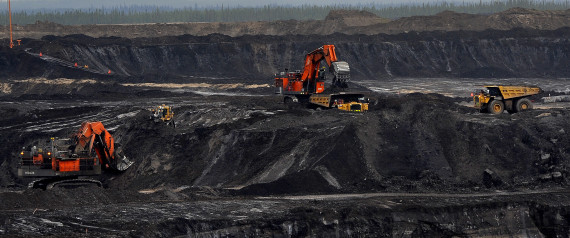The idea of carrying an electronic tracker as you go through your work day would be an uncomfortable thought for many — but for oilsands workers, it is fast becoming something that goes with the territory.
Shell is the latest company to introduce the electronic trackers, which will be carried by contractors at the Albian Sands mining operation as part of a new pilot project.
The company said the trackers, which rely on a radio frequency ID to plot worker location and movement, will help assess operational efficiency — but will also improve worker safety, such as pinpointing worker fatigue. Each tracker is also equipped with a panic button that can be used to call for help in an emergency.
“On the operational/competitiveness side, we believe that our workforce comes to Albian wanting to do a good job. Our focus in this pilot is to use the data to help us better understand the barriers that are getting in the way of that,” the company said in a statement.
“By understanding the roadblocks, we can take action to eliminate them as close to real-time as possible. In a nutshell, we are trying to improve how we run our business to help empower our employees to work more effectively and efficiently.”
Shell said the data gained from the trackers will not be used to assess an individual’s progress — except in cases where an incident investigation is underway.
The technology is becoming increasingly common in Alberta’s industrial north, said Wayne Garner, the vice president of General Teamsters Local Union No. 362.
“It doesn’t really surprise me,” he said. “Electronic monitoring is nothing really new to us.”
Garner pointed out that many industrial vehicles working in the oilsands are already equipped with GPS or tracking devices, and more and more workers are carrying small tracking devices in their wallets.
And the technology has already expanded beyond the energy sector, he said.
“If we look at industries outside the oilsands, if we look at just simple courier companies, they have been monitored for years now and it evolves every year, it gets more and more in depth.”
He said some monitoring devices used by couriers also go substantially further — able to monitor seatbelt use and vehicle doors — than those being introduced by Shell.
But even so, Garner admitted that it can take some adjustment to get used to the idea.
“I can completely understand and respect how an individual who would go to their workplace every day for a decade, and all of a sudden be handed a chip, would completely think it was a privacy invasion,” he said.
“But I think it’s something that the general public probably needs to realize — it’s here, it’s not going anywhere.”
Original Article
Source: huffingtonpost.ca/
Author: cbc
Shell is the latest company to introduce the electronic trackers, which will be carried by contractors at the Albian Sands mining operation as part of a new pilot project.
The company said the trackers, which rely on a radio frequency ID to plot worker location and movement, will help assess operational efficiency — but will also improve worker safety, such as pinpointing worker fatigue. Each tracker is also equipped with a panic button that can be used to call for help in an emergency.
“On the operational/competitiveness side, we believe that our workforce comes to Albian wanting to do a good job. Our focus in this pilot is to use the data to help us better understand the barriers that are getting in the way of that,” the company said in a statement.
“By understanding the roadblocks, we can take action to eliminate them as close to real-time as possible. In a nutshell, we are trying to improve how we run our business to help empower our employees to work more effectively and efficiently.”
Shell said the data gained from the trackers will not be used to assess an individual’s progress — except in cases where an incident investigation is underway.
The technology is becoming increasingly common in Alberta’s industrial north, said Wayne Garner, the vice president of General Teamsters Local Union No. 362.
“It doesn’t really surprise me,” he said. “Electronic monitoring is nothing really new to us.”
Garner pointed out that many industrial vehicles working in the oilsands are already equipped with GPS or tracking devices, and more and more workers are carrying small tracking devices in their wallets.
And the technology has already expanded beyond the energy sector, he said.
“If we look at industries outside the oilsands, if we look at just simple courier companies, they have been monitored for years now and it evolves every year, it gets more and more in depth.”
He said some monitoring devices used by couriers also go substantially further — able to monitor seatbelt use and vehicle doors — than those being introduced by Shell.
But even so, Garner admitted that it can take some adjustment to get used to the idea.
“I can completely understand and respect how an individual who would go to their workplace every day for a decade, and all of a sudden be handed a chip, would completely think it was a privacy invasion,” he said.
“But I think it’s something that the general public probably needs to realize — it’s here, it’s not going anywhere.”
Original Article
Source: huffingtonpost.ca/
Author: cbc

No comments:
Post a Comment